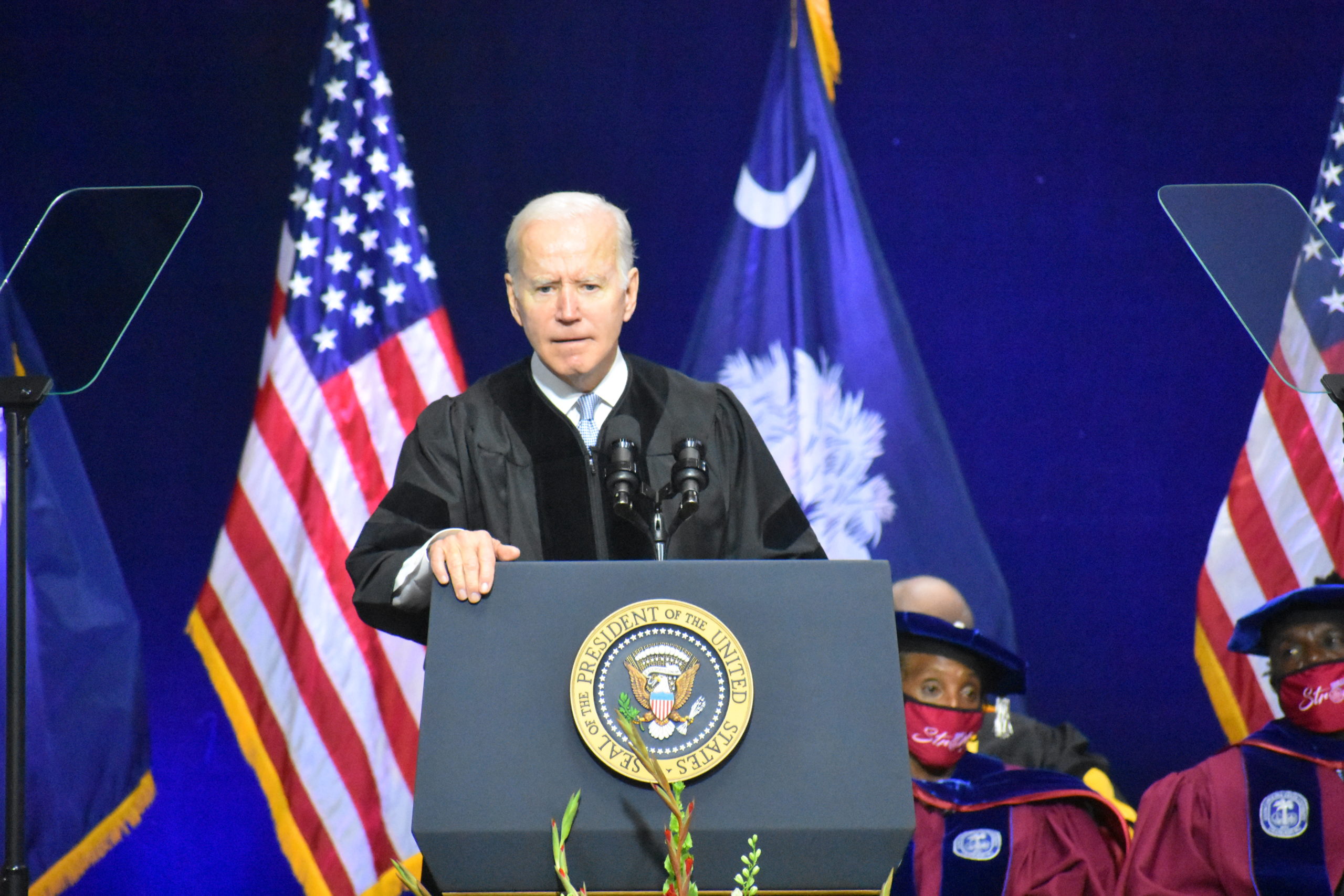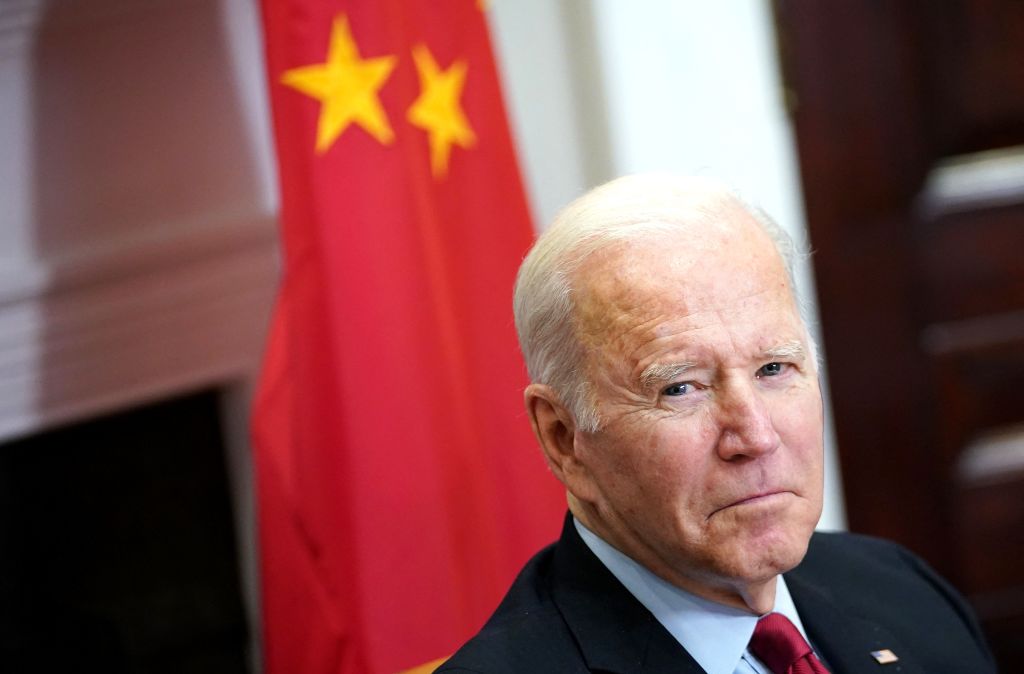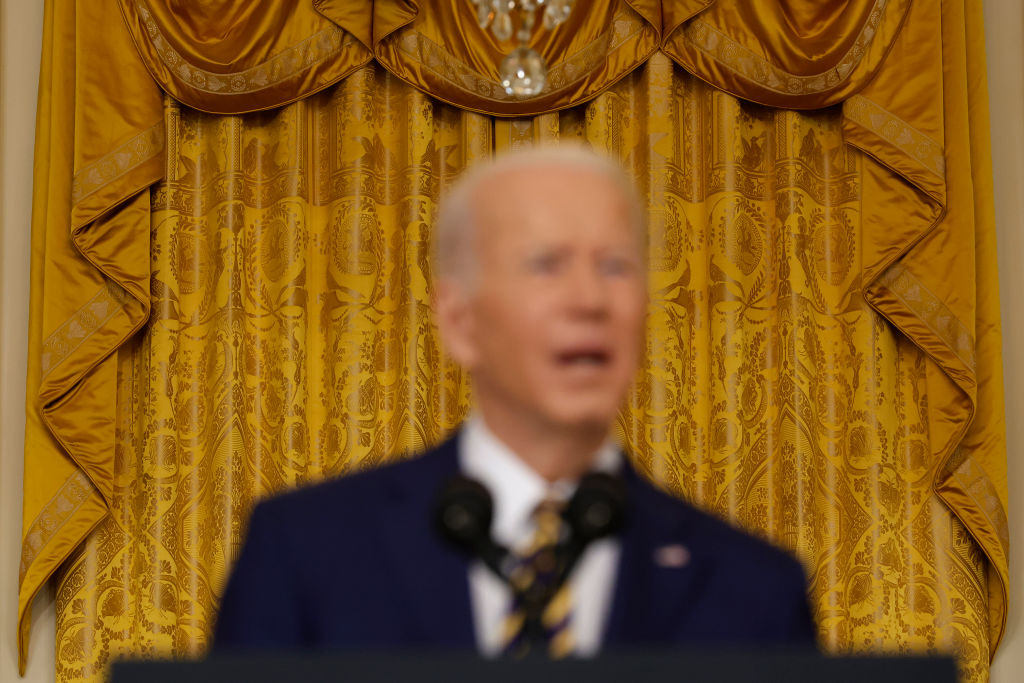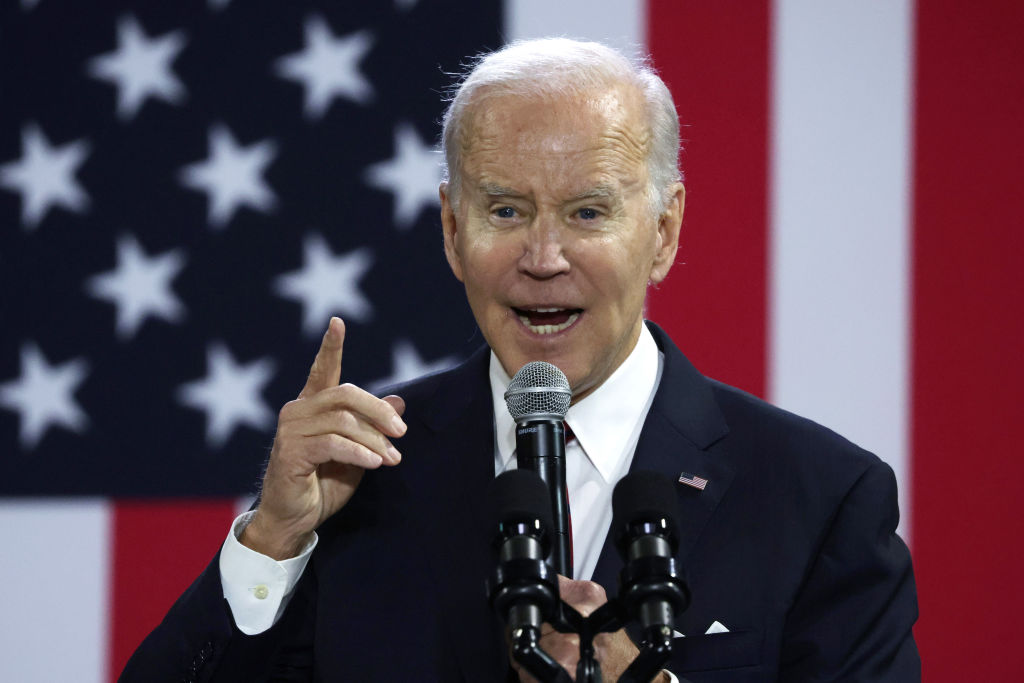The Second October War should wake America up to crucial geopolitical realities.
Ending Due Process

The Biden administration seeks to impose a radical ideology on campuses.
The Biden Administration has proposed a new rule to use Title IX, the federal ban on sex discrimination in federally funded education, to advance its radical transgender and non-binary ideologies, unconstitutionally stifle dissent, and abrogate due process at American schools and universities.
The proposed rule expands the activities subject to discipline under Title IX and, except for members of teachers’ unions, eviscerates due process protections for those accused of violating the new expansive definition of “sexual discrimination,” even if the alleged violation has nothing to do with the university’s mission and occurs outside the United States. Because the enforcement sections of the rule incorporate similar Obama-era rules that have been rejected by hundreds of courts, the Biden administration knows its rule is unconstitutional and unlawful.
Enacted as part of the Education Amendments of 1972, Title IX provides that:
“No person in the United States shall, on the basis of sex, be excluded from participation in, be denied the benefits of, or be subjected to discrimination under any education program or activity receiving Federal financial assistance.”
In its 1979 opinion Cannon v. University of Chicago, the Supreme Court explained that the objective of Title IX is to “avoid the use of Federal resources to support discriminatory practices” and to “provide individual citizens effective protection against those practices.” In 1972, women comprised 43 percent of college students and generally less than a quarter of professional and graduate students.
The Clinton administration issued rules that expanded Title IX to prohibit “conduct of a sexual nature” that creates a hostile environment. In Davis. v. Monroe Country Board of Education (1999), the Supreme Court narrowed the scope to stop student-on-student sexual harassment in schools that receive federal funds only if the schools had “actual knowledge” of harassment that is “so severe, pervasive, and objectively offensive that it can be said to deprive the victims of access to the educational opportunities or benefits provided by the school.” (emphasis added).
In 2011, the Obama Education Department weaponized Title IX with a “Dear Colleague Letter” (DCL) that required schools to provide access to facilities such as bathrooms, showers, and dorm rooms based on gender identity, rather than biological sex. It defined sexual harassment broadly as “unwelcome conduct of a sexual nature; required only that the alleged harassment potentially “interfere with or limit” access, rather than “deprive” the victim of access and recommended that schools act on constructive notice, rather than actual knowledge. Furthermore it greatly reduced due process for those accused of sexual harassment, authorizing a “single-inquisitor” model by which the investigator, prosecutor, and hearing officer could be the same person, and reduced the accused’s rights to a hearing and to confront his accuser. Meanwhile, it also imposed liability on schools for failing to take strong proactive measures.
As a result of the DCL, university Title IX offices greatly expanded. Instead of focusing on providing opportunities for equal access, the purpose of these departments shifted almost entirely to pursuing alleged purported sexual harassment. With few basic due process protections, universities began punishing male students for alleged sexual misbehavior, ranging from violent rape to allegations that there was insufficient consent to consensual sexual relations.
This shift recognized that the goals of Title IX largely had been achieved. By 1979, women took the lead on college campuses. Now, women make up 57 percent of undergraduates and about 60 percent of graduate school students. For the fifth year in a row, women outnumber men in law school, reaching about 55 percent this year. Women have been in the majority in medical school since 2019, reaching about 54 percent this year.
In 2017, the Trump Education Department rescinded the DCL. Because schools nonetheless persisted in following the Obama-era guidance, in 2020, Trump Secretary of Education Betsy DeVos issued binding regulations that reversed most of the DCL and specifically required that schools accord substantial due process to individuals accused of sexual harassment. Though the Trump regulations largely accepted the Clinton-Obama definition of sexual harassment, the administration restored the requirement that the harassment must “effectively deny a person equal access to education.”
Significantly, the Trump rules stated that “Title IX cannot be interpreted in a manner that denies any person due process of law under the U.S. Constitution.” The Trump rules required an objective hearing officer to evaluate all relevant inculpatory and exculpatory evidence, presumed the innocence of the accused, put the burden of proof on the accuser, generally prohibited gag orders on the accused (which had become common under the DCL), and required prompt time frames.
Last year, the Biden Education Department issued a first draft of new rules and a related “Dear Educator” letter to restore and build on the DCL by forcing schools to permit transgenders to participate in girls’ sports and use girls’ facilities. In addition, it expanded the definition of sexual harassment and essentially eliminated any meaningful opportunity for students or staff to defend themselves. Then, earlier this month, the Education Department formally proposed a rule that goes even further.
Among other radical, unconstitutional, or unlawful abuses of Title IX, the proposed rule again defines “sex” to include gender identity and generally does not require notification to parents of a child’s gender choice, replaces sexual “harassment” with the much more broadly defined term “discrimination,” which includes “offensive speech.” The prohibitions on “offensive speech” are intended, in part, to prevent debate about transgenders and to require adoption of pronouns like “they,” and anti-women derisions like “menstruating persons” or “birthing persons.” The rules also prohibit “sex stereotypes.” Taken together, the rule permits university administrators to police virtually all speech and social intercourse.
For the first time, the rule purports to govern conduct undertaken by members of the university community outside of the education program and outside of the United States. It also expands the definition of discrimination to include all “unwelcome sex-based conduct,” restores strict liability, and eliminates the Davis requirement that the discrimination deny equal access to education.
The rule also adopts and strengthens the DCL’s single-inquisitor model repeatedly rejected by courts and rescinds the Trump requirements that the accused be permitted to confront his accuser, obtain a hearing, or cross-examine witnesses. Furthermore, the rule eliminates the existing reminder that colleges must respect the rights of accused students.
Also for the first time, the rule pre-empts state and local laws and, except for unionized teachers, reduces the standard of proof to a mere preponderance of the evidence, even as it makes it almost impossible for an accused to defend himself.
Infected by woke lingo, the rule removes references to the complainant as a “victim” because “victim” could be perceived as stigmatizing or a pejorative.
Teresa R. Manning, who has written extensively on Title IX and directs the National Association of Scholars’ Title IX Project, presciently observed: “Campus culture, heavily influenced by feminism, has long been hostile to conventional dating and traditional sex roles. It saw in Title IX a useful means to scrutinize and reshape social mores: current Title IX offices now hardly ever mention ‘discrimination’ or equal access to education. Attention is instead focused on sexual misconduct, sexual politics, and re-education.” She gives the example of George Mason University, where “merely dating someone on campus alters the conditions of education;” and a hurtful break-up might therefore be viewed as “hostile.”
There has been extensive litigation on the DCL, the Biden Dear Educator letter, and related state and university restrictions. More than 700 lawsuits have challenged the DCL, most of which resulted in decisions and settlements in favor of the challengers. Twenty states intervened in Tennessee v. U.S. Department of Education, challenging the administration’s right through its Dear Educator Letter to force schools to follow gender identification, rather than biological sex. Two weeks ago, Federal Judge Charles E. Atchley issued a preliminary injunction that prohibits the administration from enforcing its rules against the plaintiffs. Federal courts also have held that requiring faculty members to adopt progressive terminology (such as the “they” pronoun) violates their First Amendment rights and academic freedom.
During a hearing about a Brandeis University student who had been found guilty of sexual harassment under the DCL’s single-inquisitor system, U.S. District Court Judge F. Dennis Saylor said the procedures were “closer to Salem 1792 than Boston 2015.” In 2020, the Second Circuit Court of Appeal ordered a trial on a male faculty’s member’s claims that Cornell University’s adherence to DCL procedures violated his due process rights. In a concurring opinion, Judge Jose A. Cabranes wrote that Cornell’s alleged procedures were a “brutish overreach … at the expense of simple fairness,” and compared the single-inquisitor structure to a “Star Chamber.”
The proposed rule is radical and extreme, converting free speech and insensitive dating practices into actionable offenses. Only in a totalitarian country—or the Obama and Biden administrations—are defendants subjected to the single-inquisitor model and deprived of the right to confront their accusers and defend themselves. Given that the less extreme DCL has been repeatedly struck down, the Biden administration knows broad swaths of its rule are contrary to the purpose of Title IX, violate the Cannon and Davis standards, the First Amendment, in certain circumstances the Fifth Amendment, and are contrary to every due process principle on which this country is based.
The American Mind presents a range of perspectives. Views are writers’ own and do not necessarily represent those of The Claremont Institute.
The American Mind is a publication of the Claremont Institute, a non-profit 501(c)(3) organization, dedicated to restoring the principles of the American Founding to their rightful, preeminent authority in our national life. Interested in supporting our work? Gifts to the Claremont Institute are tax-deductible.
The Biden Administration sets tough new trade policies against Beijing, but is it too little, too late?
Like a parody disaster movie, but real.
A Texas court puts the brakes on an astounding executive branch power grab.
The administration routinely disregards the Constitution, federal statutes, and republican norms.
Zimbabwe-style monetary policy comes to the U.S. Mint.






